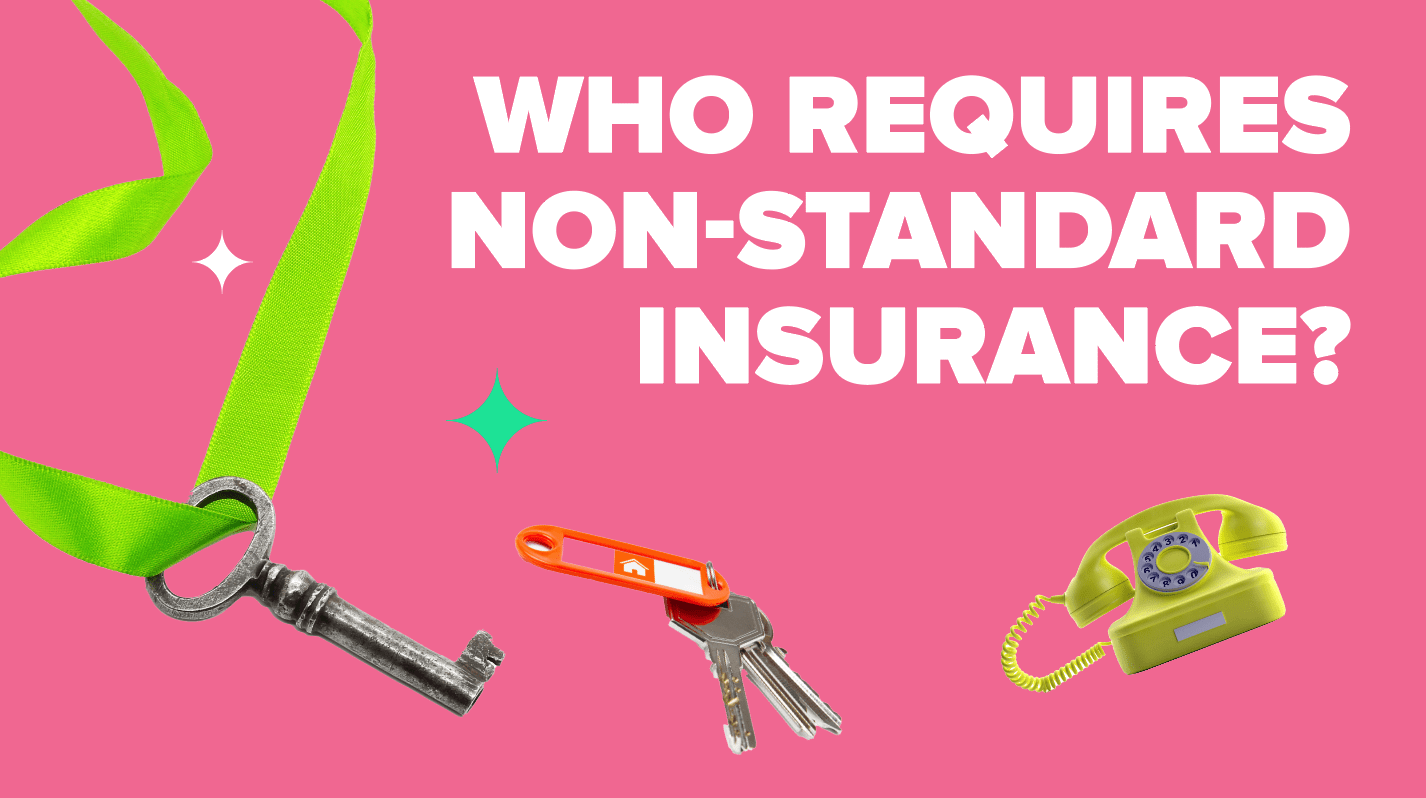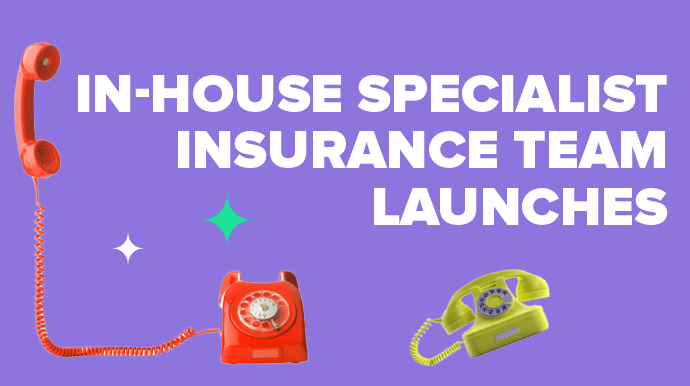Non-standard insurance applies in a situation that doesn’t fit under “standard” policy limits. It’s for cases where the property or the person’s circumstances require bespoke cover to make sure they’re protected.
It’s important to understand whether your customer falls into this category. Failure to do so could result in them being uninsured and without the correct protection in place. This leaves them at risk of high costs should they need to claim.
Uinsure Non-Standard insurance policies cover anything outside the limits of our standard home insurance policies. This is £1m for buildings and up to £100k contents. But there are various means that can lead to a property or person falling into the non-standard insurance category.
1. Non-Standard Construction and Listed Buildings
Standard home insurance assumes properties are built from brick or stone with slate or tiled roofs. Anything outside this is non-standard, which includes:
- Timber-framed homes, prefab builds, concrete houses and cob or wattle and daub constructions;
- Houses with flat or thatched roofs;
- Barn conversions and eco-builds often fall into non-standard property types too;
- Properties protected for architectural or historical reason, known as listed buildings.
2. Unoccupied Buildings and Second/Holiday Homes
Homes that are unoccupied for more than 60 days or used as second/holiday homes will likely require non-standard insurance.
In most cases if a property is used as a primary home but ends up being unoccupied for 60 days or longer then the insurance company will ask to be informed. It provides a greater risk of burglaries or problems arising with nobody there to notice them, such as burst pipes.
If it is already known that the property will be unoccupied at the time of getting insurance quotes, it falls into the non-standard category.
3. Buildings with a History of Flooding or Subsidence
Homes that have suffered from subsidence, heave, landslip or flooding in the last 25 years are considered higher risk and typically require non-standard insurance. In the case of subsidence, even if the issue has been resolved, insurers will usually continue to treat it as a potential risk due to the chance of further structural problems or the subsidence returning.
Similarly, properties located in areas with a known history of flooding usually require non-standard cover. This includes homes that have flooded in the past or are located near bodies of water. To check if a property is classed as being in a flood-risk area check the following websites:
England: GOV.UK
Wales: Natural Resources Wales
Scotland: SEPA
Northern Ireland: Department for Infrastructure
Uinsure usually covers up to £1million for loss or damage to your buildings caused by events such as storms and flooding, plus up to £200,000 for temporary housing for family and pets if your home is not safe to live in following an insured event. But, this could amount to much more in high-risk areas. As a result, non-standard insurance will likely be needed.
4. Properties with Ongoing Building Works
Properties that are undergoing building work often require non-standard insurance because the presence of tradespeople, tools, scaffolding, and structural changes increases the risk of damage and accidents. Insurers see active renovation or construction as a risk that falls outside of a standard home policy.
- Building work in this context includes major alterations such as:
- Structural changes (e.g. extensions, removing load-bearing walls, loft conversions);
- Roof replacements;
- Internal reconfiguration or significant plumbing/electrical rewiring;
- Garage conversions or adding outbuildings.
Typically building work that doesn’t require non-standard insurance would be smaller changes like decorating (painting or changing flooring), minor non-structural repairs like replacing a door or tap, and kitchen or bathroom refits that don’t involve plumbing changes.
5. Mid-High Net Worth Policies
Mid–high net worth policies often require non-standard insurance due to the higher overall value and complexity of what’s being insured. These are typically for people whose properties exceed standard rebuild costs (usually £500,000 or more) and whose contents include high-value items such as fine art, jewellery, antiques or bespoke furnishings.
Uinsure’s non-standard insurance offers coverage outside of the standard £1m for buildings and up to £100k for contents. Mid-high net worth policies refer to customers with higher value buildings and/or contents than this.
6. People with an Adverse Claims History
An adverse claims history refers to a record of frequent and/or high-value insurance claims made by an person in the past. Insurers use this history as an indicator of risk. A pattern of repeated or significant claims may suggest that the individual’s property or circumstances present a higher likelihood of future claims.
This doesn’t necessarily imply fraud or negligence. But, from an underwriting perspective it places the policyholder outside the risk profile preferred for standard home insurance.
This can also include people who have had home insurance policies declined or cancelled by the insurer.
7. Individuals with Criminal Convictions
Having an unspent criminal conviction can make it harder to access standard home insurance. Many mainstream insurers consider criminal records a potential risk factor. This particularly applies if the conviction relates to fraud, theft, or property damage.
In these situations, non-standard home insurance offers a practical solution. It is able to provide cover so people with past or pending convictions can still protect their home and belongings.
Now you know what type or customers and properties fall into non-standard insurance, take a look at our non-standard insurance page so you can get a better view of the type of cover Uinsure offers in these circumstances.
Click here to view our non-standard insurance page.
Or, click here to view our non-standard insurance crib sheet.
If you already work with Uinsure, you can refer your non-standard customers by following the link and selecting ‘non-standard’ to ensure it ends up with the correct team: quotes.uinsure.co.uk/referral-progress/



